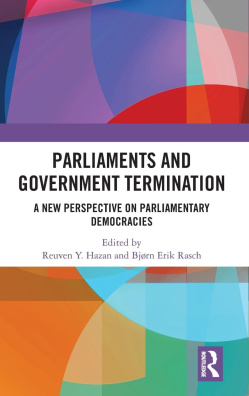Zaradené v kategóriách: ZAHRANIČNÍ LITERATURA
Parliaments and Government Termination 1st Edition
Reuven Y. Hazan, Bjørn Erik Rasch
ISBN
978-1032501703
EAN
9781032501703
This book assesses the larger influences that government termination by parliaments has on executive–legislative relations, claiming that the way in which the governments may be challenged or dismissed has far greater impact than previously understood.
The core feature of a parliamentary system is not that governments tend to emerge from the legislatures in some way or another, but their political responsibility to this body. While in only some parliamentary systems the government needs formal support of parliament to take office, in all parliamentary systems no government can survive against the will of parliament. The academic literature related to the rules for how governments form is vast. Strikingly, scholars have paid far less time to unpack the core institution of parliamentary systems of government – the confidence relationship and the various no confidence procedures. The chapters explore the institutions by which parliaments hold governments accountable and how they balance elected parliaments and appointed governments in parliamentary systems. Contributions move beyond the standard focus on government formation and instead analyse government termination by parliament evaluating its consequences in a detailed and comprehensive manner.
This book will be of interest to students and academics in the field of political science, governance and political theory. The chapters in this book were originally published in West European Politics.
Ostatní s tímto titulem kupují:
-
Položka byla přidána do košíku.
















